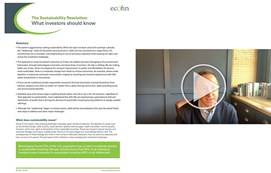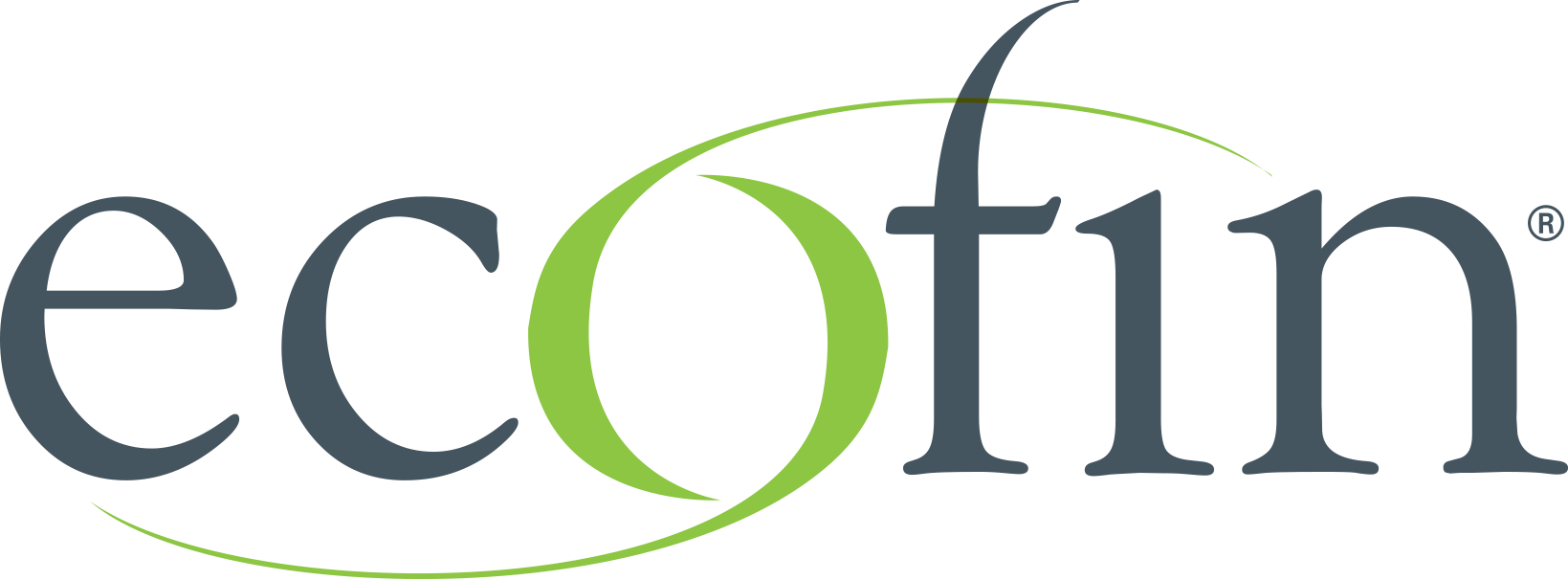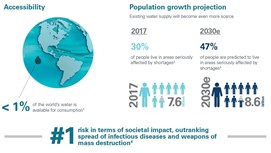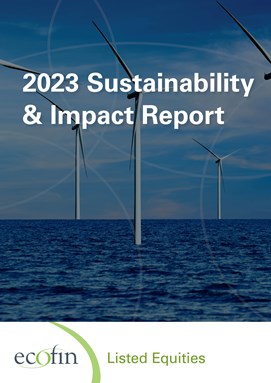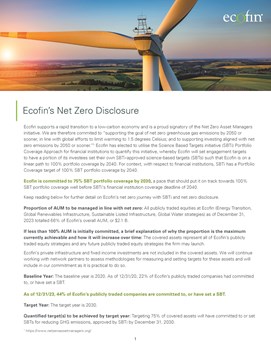| DISCLOSURE REQUIREMENT |
DISCLOSURE OR LOCATION OF RELEVANT DISCLOSURE |
| Investment strategy and objective of the AIF |
Please see the subheadings titled “Investment objective” and “Investment policy and strategy” of the heading titled “Investment Objective and Investment Policy” in the Annual Report. |
| Master fund domicile, if relevant |
Not applicable. |
| If the AIF is a fund of funds, the domicile of investee funds |
Not applicable. |
| The type of assets in which the AIF may invest |
Please see the subheadings titled “Investment objective” and “Investment policy and strategy” of the heading titled “Investment Objective and Investment Policy” in the Annual Report. |
| Investment techniques that may be employed by the AIF and all associated risks |
Please see the subheading titled “Investment policy and strategy” of the heading titled “Investment Objective and Investment Policy” in the Annual Report. |
| Investment restrictions |
Please see the subheading titled “Investment restrictions” of the heading titled “Investment Objective and Investment Policy” in the Annual Report. |
| Circumstances in which the AIF may use leverage, the types and sources of leverage permitted and the associated risks, any restrictions on the use of leverage and the maximum level of leverage which the AIFM is entitled to employ on behalf of the AIF |
Please see the subheading titled “Gearing policy” of the heading titled “Investment Objective and Investment Policy” in the Annual Report. |
| Any collateral and asset reuse arrangements |
Not applicable. |
| Procedures by which the AIF may change its investment strategy or investment policy or both |
Please see the subheading titled “Amendments to the investment objective, policy and investment restrictions” of the heading titled “Investment Objective and Investment Policy” in the Annual Report. |
| The main implications of the contractual relationship entered into for the purpose of investment including information on jurisdiction, the applicable law and on the existence (or not) of any legal instruments providing for the recognition and enforcement of judgments in the territory where the AIF is established |
The Company is a public company limited by shares, incorporated in England and Wales. While investors acquire an interest in the Company on subscribing for or purchasing Shares, the Company is the sole legal and/or beneficial owner of its investments. Consequently, Shareholders have no direct legal or beneficial interest in those investments. The liability of Shareholders for the debts and other obligations of the Company is limited to the amount unpaid, if any, on the Shares held by them. Shareholders’ rights in respect of their investment in the Company are governed by the Articles of Association and the Companies Act. Under English law, the following types of claims may in certain circumstances be brought against a company by its shareholders: contractual claims under its articles of association; claims in misrepresentation in respect of statements made in its prospectus and other marketing documents; unfair prejudice claims; and derivative actions. In the event that a Shareholder considers that it may have a claim against the Company in connection with such investment in the Company, such Shareholder should consult its own legal advisers.
Jurisdiction and applicable law
As noted above, Shareholders’ rights are governed principally by the Articles of Association and the Companies Act. By subscribing for the Shares, investors agree to be bound by the Articles of Association which are governed by, and construed in accordance with, the laws of England and Wales.
Recognition and enforcement of foreign judgments
Regulation (EC) 593/2008 ("Rome I") must be applied in all member states of the European Union (other than Denmark). Accordingly, where a matter comes before the courts of the relevant member state, the choice of governing law in any given agreement is subject to the provisions of Rome I. Under Rome I, the member state's court may apply any rule of that member state's own law which is mandatory, irrespective of the governing law, and may refuse to apply a rule of governing law if it is manifestly incompatible with the public policy of that member state. Further, where all other elements relevant to the situation at the time of the choice are located in a country other than the country whose law has been chosen, the choice of the parties shall not prejudice the application of provisions of the law of that country which cannot be derogated from by agreement.
The UK has legislated to the effect that, following its exit from the EU, the rules in Rome I were incorporated into domestic law. As a result, English choice of law clauses in contracts continue to be respected both in the UK and EU member states.
The UK’s future accession to the 2007 Lugano Convention on jurisdiction and the recognition and enforcement of judgments in civil and commercial matters remains uncertain and, consequently, foreign judgments obtained in EU member states relating to proceedings commenced on or after 1 January 2021 will only be enforceable under the default common law regime or (if applicable) the Hague Convention. The Hague Convention only applies to the enforcement of judgments that arise from proceedings commenced pursuant to an exclusive jurisdiction clause in favour of a contracting state in civil or commercial matters. The UK government has passed domestic legislation which came into force 1 January 2021, providing that exclusive jurisdiction clauses, which would have previously been caught by the Hague Convention by virtue of the UK's membership of the EU, will continue to be treated in exactly the same way as exclusive jurisdiction clauses concluded once the UK is a member of the Hague Convention in its own right.
|
| The identity of the AIFM, the AIF’s depositary, auditor and other service providers together with a description of their duties and the investors’ rights |
Alternative Investment Fund Manager
Ecofin Advisors, LLC has been appointed to act as the AIFM of the Company in compliance with the provisions of the AIFM Directive.
Registrar
Computershare Investor Services PLC has been appointed as registrar to the Company in respect of the transfer and settlement of Shares held in certificated and uncertificated form.
Administrator
Sanne Fund Services (UK) Limited has been appointed as administrator to the Company. The Administrator provides the day-to-day administration of the Company and is also responsible for the Company’s general administrative functions, such as calculation and publication of the Net Asset Value and maintenance of the Company’s accounting and statutory records. The Administrator is responsible for calculating the Net Asset Value of the Ordinary Shares in consultation with the AIFM and reporting this to the Board.
Company Secretary
Sanne Fund Services (UK) Limited has also been appointed as Company Secretary to the Company. The Company Secretary provides company secretarial services and a registered office to the Company.
Auditor
BDO LLP provides audit services to the Company. The annual report and accounts have been prepared according to accounting standards in line with IFRS.
Depositary
The provisions of the AIFM Directive concerning depositaries do not apply to the AIFM. As such a depositary has not been appointed.
|
| Management of professional liability risk |
The provisions of the AIFM Directive concerning professional indemnity insurance or additional own funds to cover professional negligence risk do not apply to the AIFM. Nevertheless, the AIFM has the benefit of professional indemnity and directors’ and officers’ liabilities insurance coverage.
|
| The Company’s valuation procedure and pricing methodology |
Please see the subheading titled “Portfolio Valuation” of the heading titled “Investment Manager’s Report” in the Annual Report.
|
| The Company’s liquidity risk management, including redemption rights and redemption arrangements |
Please see the subheading titled “Liquidity Risk” of the heading titled “Notes to the Financial Statements” in the Annual Report.
|
| Fees, charges and expenses, which are directly or indirectly borne by investors |
Please see the subheading titled “Investment Management Fees” of the heading titled “Notes to the Financial Statements” in the Annual Report.
|
| Fair and preferential treatment of investors |
The AIFM ensures that investors are treated fairly in a number of ways, including by ensuring that any preferential treatment granted by the AIFM to one or more investors does not result in an overall material disadvantage to the other investors by: (i) ensuring that its decision-making procedures are applied fairly as between investors; (ii) applying relevant policies and procedures properly; (iii) ensuring, to the extent within its power, that investors do not bear directly or indirectly fees, charges and expenses which are inappropriate in nature or amount; (iv) complying with the rules and guidance of the SEC (or equivalent) applicable to it; and (v) conducting its activities honestly, fairly and with due skill, care and diligence.
|
| The Company’s annual report, and the disclosure requirements under Articles 23(4) and 23(5) of the AIFM Directive |
The information required under paragraphs 4 and 5 of Article 23 of the AIFM Directive is disclosed in the Company’s audited annual report.
|
| The Company’s latest net asset value or latest market price of its share |
The Company’s Net Asset Value is made available at https://uk.ecofininvest.com/funds/ecofin-us-renewables-infrastructure-trust-plc/
|
| The Company’s historical performance |
The Company’s historical performance information is made available at https://uk.ecofininvest.com/funds/ecofin-us-renewables-infrastructure-trust-plc/
|
| The Company’s prime broker |
The Company has not appointed a prime broker.
|
| Sustainable investment objective and Taxonomy-alignment |
Please refer to Annex III for information on the Company's sustainable investment objective and how its investments align with the Taxonomy criteria for environmentally sustainable economic activities. |
